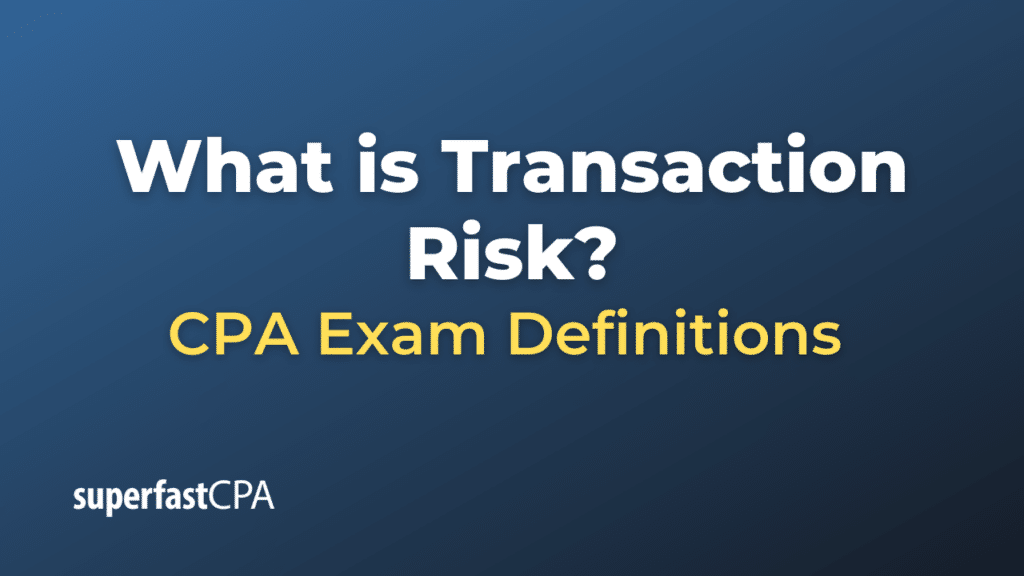Transaction Risk
Transaction risk, also known as transaction exposure, pertains to the potential changes in the value of outstanding obligations (such as accounts payable or receivable) due to fluctuations in foreign exchange rates. It arises when future cash flows that have already been contracted are affected by an unexpected change in exchange rates.
Companies that deal in international trade, especially those that have significant transactions denominated in foreign currencies, frequently face transaction risk. Since exchange rates can vary from the time a transaction is initiated to the time it’s settled, there is a potential for either gain or loss due to these rate fluctuations.
Example of Transaction Risk
Let’s illustrate transaction risk with a scenario involving a British company importing coffee beans from Colombia.
Scenario: BrewCafe’s Colombian Coffee Import
BrewCafe, a British coffee chain, enters into an agreement on March 1 to import coffee beans from a Colombian supplier for COP 300 million. Payment for the beans is due three months later on June 1. On March 1, the exchange rate is 5,000 Colombian Pesos (COP) per British Pound (GBP), so BrewCafe expects to pay £60,000 (COP 300 million ÷ 5,000).
However, currency exchange rates are prone to fluctuation due to various economic, geopolitical, and financial factors.
Exchange Rate Variations:
- Situation A – GBP Strengthens: By June 1, the GBP strengthens against the COP, and the new exchange rate is 4,000 COP/GBP.
- Originally expected payment: £60,000
- Actual payment due to rate change: COP 300 million ÷ 4,000 = £75,000
- Additional cost due to transaction risk: £15,000
- Situation B – GBP Weakens: If the GBP weakens and the exchange rate changes to 6,000 COP/GBP:
- Originally expected payment: £60,000
- Actual payment due to rate change: COP 300 million ÷ 6,000 = £50,000
- Savings due to transaction risk: £10,000
Managing Transaction Risk:
To protect itself against such exchange rate risks, BrewCafe could use a forward contract. A forward contract would allow BrewCafe to “lock in” the exchange rate of 5,000 COP/GBP for June 1, ensuring they only pay the initially expected £60,000 regardless of future fluctuations in the currency market.
By doing this, BrewCafe effectively hedges its transaction risk, providing both financial predictability and protection against potential unfavorable movements in the exchange rate.













